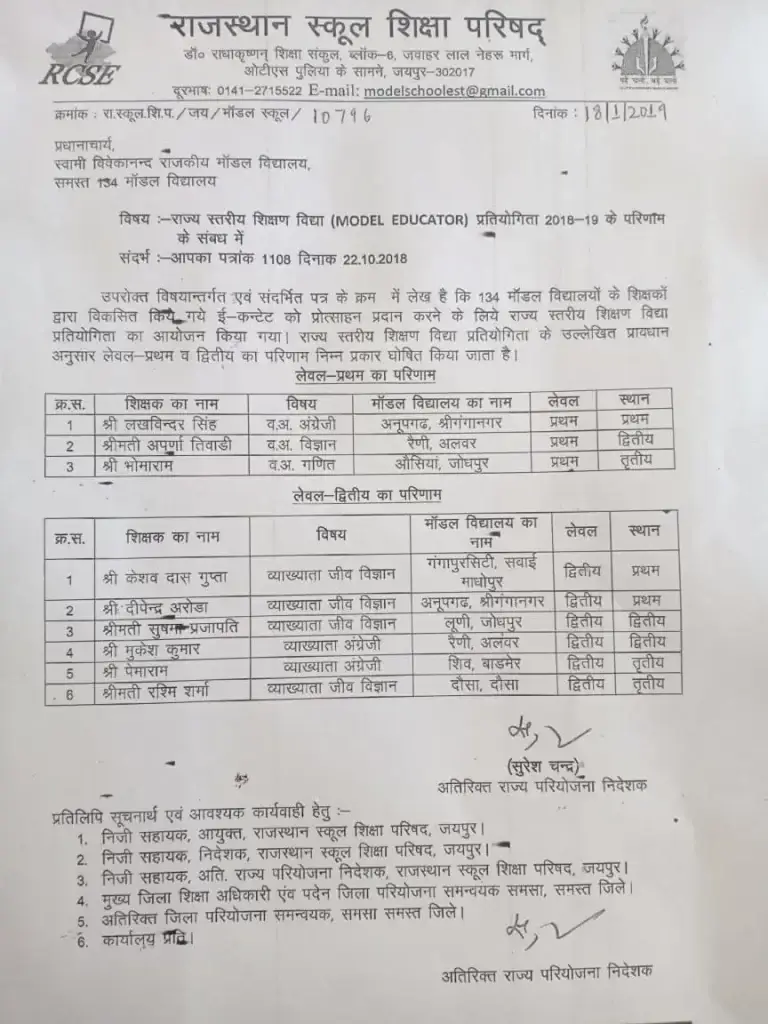From the modest village of Jaitsar in Rajasthan emerges a story that challenges preconceptions about rural education in India. Mukesh Kumar Sharma, a dedicated English lecturer, has done what many thought impossible: winning the prestigious Fulbright Distinguished Award for International Teachers while working in a rural government school.
Table of Contents
This recognition isn’t just about individual achievement—it’s a testament to the untapped potential in India’s rural education sector. Working at Government Senior Secondary School Muklawa in Sri Ganganagar, Sharma has demonstrated that geographical location need not limit educational excellence.
Breaking the Rural-Urban Divide
In a country where the rural-urban education gap remains a significant challenge, Sharma’s achievement serves as a powerful counter-narrative. His success story demonstrates that rural institutions can not only match but sometimes exceed urban standards when provided with innovative leadership and dedicated teaching approaches.
The impact of his work extends far beyond conventional academics:
- Creation of sustainable educational models for rural areas
- Development of locally relevant teaching methodologies
- Implementation of cost-effective learning solutions
- Integration of traditional knowledge with modern education
- Establishment of community-centered learning programs

Mukesh Kumar Sharma’s Innovative Solutions for Rural Challenges
Understanding the unique challenges faced by rural students, Sharma developed a multi-pronged approach to education:
Economic Accessibility
- Authored over 30 educational books priced affordably for rural families
- Developed LitGram, an educational app offering courses at one-tenth of market rates
- Facilitated free access to global online learning platforms
- Created cost-effective study materials for local students
Community Integration
- Established partnerships with local agricultural communities
- Integrated practical skills training with academic education
- Created programs that reflect local cultural contexts
- Developed parent-teacher collaboration networks
Employment Focus
- Implemented job-oriented training programs
- Created connections with local industries
- Developed skill-based learning modules
- Established career guidance centers
Transforming Rural Education Landscape
The impact of Sharma’s initiatives on the rural education landscape has been remarkable:
- Student Retention
- Increased school attendance rates
- Reduced dropout rates
- Enhanced student engagement
- Improved academic performance
- Community Development
- Greater parent participation in education
- Increased community support for schooling
- Enhanced local employment opportunities
- Strengthened village-school connections
- Educational Access
- Improved availability of quality learning materials
- Enhanced accessibility to global educational resources
- Better integration of technology in rural classrooms
- Increased opportunities for higher education
Model for Rural Development
Sharma’s approach offers a replicable model for rural educational development:
Key Components
- Local Context Integration
- Understanding community needs
- Adapting global standards to local conditions
- Preserving cultural values while advancing education
- Resource Optimization
- Making maximum use of available resources
- Creating sustainable educational models
- Developing cost-effective solutions
- Community Engagement
- Building strong school-community bonds
- Involving parents in educational processes
- Creating community ownership of education
Future Implications
The Fulbright recognition opens new possibilities for rural education in India:
- Opportunity to showcase rural teaching excellence globally
- Platform for sharing successful rural education models
- Potential for international collaborations
- Avenue for bringing global best practices to rural India
Catalyst for Change
Sharma’s achievement of winning prestigious Fulbright Award is expected to catalyze several positive changes:
- Policy Impact
- Greater focus on rural education development
- Increased resource allocation to rural schools
- Enhanced support for innovative teaching methods
- Inspirational Effect
- Motivation for rural educators
- Encouragement for rural students
- Demonstration of rural potential
- Development Opportunities
- New pathways for rural-urban educational integration
- Enhanced possibilities for international collaboration
- Improved prospects for rural educational institutions
Other Awards
In addition to the prestigious Fulbright Distinguished Award, Mukesh Kumar Sharma has been recognized for his exceptional contributions to education with several other accolades. Notably, he was honored with the Model Educator Award by the Rajasthan government, a testament to his innovative and impactful work in transforming rural education.

This recognition highlights Sharma’s ability to address the unique challenges faced by rural communities and his dedication to creating sustainable, accessible, and high-quality educational solutions. His achievements continue to inspire educators across India and beyond, showcasing the potential of rural education to drive meaningful change.
Conclusion
Mukesh Kumar Sharma’s recognition through the Fulbright Distinguished Award represents more than personal achievement—it symbolizes the vast untapped potential in rural India. His success demonstrates that with dedication, innovation, and community engagement, rural educational institutions can achieve international standards of excellence.
This story from Jaitsar serves as an inspiration and a practical model for rural development through education. It proves that geographical constraints need not limit educational excellence and that rural India can produce world-class educators and educational innovations.



1 Comment
Pingback: How to Ace Your RPSC Assistant Professor Interview: A Comprehensive Guide (2024) - LitGram by MukeshRishit